DOT & Dangerous Roads Injuries
Thursday, April 19th, 2018 The North Carolina Department of Transportation (NCDOT) is one of the state’s largest agencies and its responsibilities include building, repairing, and operating all kinds of transportation within the state of North Carolina – i.e. highways, railroads, aviation, ferries, public transit, bike paths, and pedestrian walkways.
The North Carolina Department of Transportation (NCDOT) is one of the state’s largest agencies and its responsibilities include building, repairing, and operating all kinds of transportation within the state of North Carolina – i.e. highways, railroads, aviation, ferries, public transit, bike paths, and pedestrian walkways.
The department is led by the secretary of transportation who is a member of the governor’s cabinet.
N.C.G.S. § 143B-346 defines the purpose and functions of the NC DOT as follows:
The general purpose of the Department of Transportation is to provide for the necessary planning, construction, maintenance, and operation of an integrated statewide transportation system for the economical and safe transportation of people and goods as provided for by law. The Department shall also provide and maintain an accurate register of transportation vehicles as provided by statutes, and the Department shall enforce the laws of this State relating to transportation safety assigned to the Department. The Department of Transportation shall be responsible for all of the transportation functions of the executive branch of the State as provided by law except those functions delegated to the Utilities Commission and the Commissioners of Navigation and Pilotage as provided for by Chapter 76. The major transportation functions include aeronautics, highways, mass transportation, motor vehicles, and transportation safety as provided for by State law. The Department of Transportation shall succeed to all functions vested in the Board of Transportation and the Department of Motor Vehicles on July 1, 1977.
While the state and local governments are generally protected from all kinds of lawsuits based on both sovereign and governmental immunity which derived from the English concept that the “king can do no wrong,” the state has waived its immunity against tort claims as provided by N.C.G.S. § 143-291, which reads as follows:
(a) The North Carolina Industrial Commission is hereby constituted a court for the purpose of hearing and passing upon tort claims against the State Board of Education, the Board of Transportation, and all other departments, institutions and agencies of the State. The Industrial Commission shall determine whether or not each individual claim arose as a result of the negligence of any officer, employee, involuntary servant or agent of the State while acting within the scope of his office, employment, service, agency or authority, under circumstances where the State of North Carolina, if a private person, would be liable to the claimant in accordance with the laws of North Carolina. If the Commission finds that there was negligence on the part of an officer, employee, involuntary servant or agent of the State while acting within the scope of his office, employment, service, agency or authority that was the proximate cause of the injury and that there was no contributory negligence on the part of the claimant or the person in whose behalf the claim is asserted, the Commission shall determine the amount of damages that the claimant is entitled to be paid, including medical and other expenses, and by appropriate order direct the payment of damages as provided in subsection (a1) of this section, but in no event shall the amount of damages awarded exceed the amounts authorized in G.S. 143-299.2 cumulatively to all claimants on account of injury and damage to any one person arising out of a single occurrence. Community colleges and technical colleges shall be deemed State agencies for purposes of this Article. The fact that a claim may be brought under more than one Article under this Chapter shall not increase the foregoing maximum liability of the State.
(a1) The unit of State government that employed the employee at the time the cause of action arose shall pay the first one hundred fifty thousand dollars ($150,000) of liability, and the balance of any payment owed shall be paid in accordance with G.S. 143-299.4.
(b) If a State agency, otherwise authorized to purchase insurance, purchases a policy of commercial liability insurance providing coverage in an amount at least equal to the limits of the State Tort Claims Act, such insurance coverage shall be in lieu of the State’s obligation for payment under this Article.
(c) The North Carolina High School Athletic Association, Inc., is a State agency for purposes of this Article, and its liability in tort shall be only under this Article. This subsection does not extend to any independent contractor of the Association. The Association shall be obligated for payments under this Article, through the purchase of commercial insurance or otherwise, in lieu of any responsibility of the State or The University of North Carolina for this payment. The Association shall be similarly obligated to reimburse or have reimbursed the Department of Justice for any expenses in defending any claim against the Association under this Article.
(d) Liability in tort of the State Health Plan for Teachers and State Employees for noncertifications as defined under G.S. 58-50-61 shall be only under this Article.
The Industrial Commission has exclusive, original jurisdiction over claims covered by the Tort Claims Act. Payments by the state under the Tort Claims Act are limited to one million dollars ($1,000,000.00) as provided by N.C.G.S. § 143-299.2:
(a) The maximum amount that the State may pay cumulatively to all claimants on account of injury and damage to any one person arising out of any one occurrence, whether the NC General Statutes – Chapter 143 Article 31 7 claim or claims are brought under this Article, or Article 31A or Article 31B of this Chapter, shall be one million dollars ($1,000,000), less any commercial liability insurance purchased by the State and applicable to the claim or claims under G.S. 143-291(b), 143-300.6(c), or 143-300.16(c).
(b) The fact that a claim or claims may be brought under more than one Article under this Chapter shall not increase the above maximum liability of the State.
Collins Law Firm along with H. Mitchell Baker, III, have experience in bringing action under the Tort Claims Act based on the NCDOT’s failure to have adequate signage or warnings in place to notify and warn motorists of upcoming intersections, or based on the NC DOT’s breach of its duty to keep the public streets open for travel and free from unnecessary obstructions.
If you or someone you know and care about has been injured due to negligence by NCDOT, please call Collins Law Firm at 910-793-9000 for a free confidential consultation.
By Jana H. Collins

 It happens so easily—one makes a bad choice, gets misunderstood, or falsely accused, and in the result faces criminal charges. Regardless of the outcome in a criminal matter—even in case of a wrongful criminal charge—the fact that one was criminally charged will result in a criminal record. Unless dealt with appropriately, a criminal record may create a virtuous circle and negatively affect one’s chances in the job market, in college applications, on the housing market, etc. In an attempt to mitigate or avoid negative consequences of one’s criminal record, one should consult with an attorney about whether or not they are eligible for an expunction of their criminal record and if eligible, pursue the expunction.
It happens so easily—one makes a bad choice, gets misunderstood, or falsely accused, and in the result faces criminal charges. Regardless of the outcome in a criminal matter—even in case of a wrongful criminal charge—the fact that one was criminally charged will result in a criminal record. Unless dealt with appropriately, a criminal record may create a virtuous circle and negatively affect one’s chances in the job market, in college applications, on the housing market, etc. In an attempt to mitigate or avoid negative consequences of one’s criminal record, one should consult with an attorney about whether or not they are eligible for an expunction of their criminal record and if eligible, pursue the expunction. This holiday season AAA is expecting 103 million Americans to travel, which is nearly 1.5 million more people than last year. While many people choose to fly to their Christmas destinations, AAA is predicting that more people will be driving this year than previous years. It is very important that those driving, no matter the distance, are prepared for their travel. Make sure you’ve recently gotten an oil change, check your tires to make sure they have the right pressure, never let your gas tank get below ¼ of a tank while traveling, and secure all luggage in your car.
This holiday season AAA is expecting 103 million Americans to travel, which is nearly 1.5 million more people than last year. While many people choose to fly to their Christmas destinations, AAA is predicting that more people will be driving this year than previous years. It is very important that those driving, no matter the distance, are prepared for their travel. Make sure you’ve recently gotten an oil change, check your tires to make sure they have the right pressure, never let your gas tank get below ¼ of a tank while traveling, and secure all luggage in your car.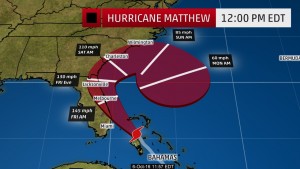 North Carolina residents have been keeping a close eye on Hurricane Matthew this past week. On Monday, Governor Pat McCrory issued a state of emergency for 66 North Carolina counties, including New Hanover County, Brunswick County, and Pender County. This hurricane was supposed to directly hit the coast, but the latest forecast track shows that this powerful storm is expected to make a sharp turn to the east as it nears the North Carolina Coast. This sharp turn is caused by an upper level trough which will move towards the eastern United States and force the hurricane away from moving up the east coast. It will also likely weaken into a Category 1 hurricane by this point.
North Carolina residents have been keeping a close eye on Hurricane Matthew this past week. On Monday, Governor Pat McCrory issued a state of emergency for 66 North Carolina counties, including New Hanover County, Brunswick County, and Pender County. This hurricane was supposed to directly hit the coast, but the latest forecast track shows that this powerful storm is expected to make a sharp turn to the east as it nears the North Carolina Coast. This sharp turn is caused by an upper level trough which will move towards the eastern United States and force the hurricane away from moving up the east coast. It will also likely weaken into a Category 1 hurricane by this point.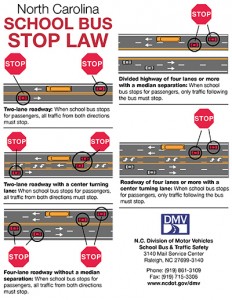 This week, many North Carolina children said goodbye to their summer break and began the 2016-2017 school year. For many students, this involves riding a school bus to and from school. There are thousands of school buses traveling North Carolina highways daily, which means that it is incredibly important for drivers to pay attention to the road and avoid distractions in order to keep everyone safe.
This week, many North Carolina children said goodbye to their summer break and began the 2016-2017 school year. For many students, this involves riding a school bus to and from school. There are thousands of school buses traveling North Carolina highways daily, which means that it is incredibly important for drivers to pay attention to the road and avoid distractions in order to keep everyone safe. The Good Samaritan Law (now effective in 20 states) went into effect in North Carolina on April 9, 2013. The basis for the law is overdose prevention and survival – get help, CALL 911! Individuals who experience or witness an overdose can now seek help for the victim without being prosecuted for small amounts of drugs/drug paraphernalia, or alcohol for persons under 21 years old under N.C. Gen. Stat. § 18B-302.2 Medical treatment; limited immunity. Additionally, as of August 1, 2015, a person who seeks medical assistance for someone experiencing a drug overdose cannot be considered in violation of probation, condition of parole, or post-release. Likewise, the victim is protected. In order for the immunity to apply, however, the 911 caller must provide his or her name, and act in good faith when seeking assistance, and reasonably believe that he or she is the first person to call for help.
The Good Samaritan Law (now effective in 20 states) went into effect in North Carolina on April 9, 2013. The basis for the law is overdose prevention and survival – get help, CALL 911! Individuals who experience or witness an overdose can now seek help for the victim without being prosecuted for small amounts of drugs/drug paraphernalia, or alcohol for persons under 21 years old under N.C. Gen. Stat. § 18B-302.2 Medical treatment; limited immunity. Additionally, as of August 1, 2015, a person who seeks medical assistance for someone experiencing a drug overdose cannot be considered in violation of probation, condition of parole, or post-release. Likewise, the victim is protected. In order for the immunity to apply, however, the 911 caller must provide his or her name, and act in good faith when seeking assistance, and reasonably believe that he or she is the first person to call for help.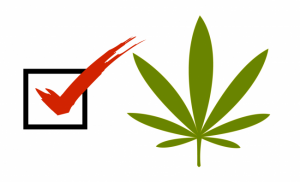 The medical marijuana movement – a new provision! As found in Congress’ new 1,603-page spending plan, federal agents are now banned from policing medical marijuana users and raiding dispensaries in any state where medical marijuana is legal. Though the media has been hesitant to broadcast this news, you can be assured that this will change the way America sees and treats medical marijuana – and ultimately signals a big shift in drug policy. After two decades of tension and controversy between Washington and the states regarding medical marijuana, the passage of this bill marks a victory for so many. The origin of the movement towards federal legalization of medical marijuana can be linked to the many organizations advocating for federally legalized marijuana such as the Americans for Safe Access, the National Organization for the Reform of Marijuana Laws, and the Marijuana Policy Project. The Drug Enforcement Administration (DEA) however is not so thrilled, still arguing that marijuana is in the category of most dangerous narcotics, with no exception to medical use. The legalization of medical marijuana began in the 1990’s and now 23 states and the District of Columbia have legalized it.
The medical marijuana movement – a new provision! As found in Congress’ new 1,603-page spending plan, federal agents are now banned from policing medical marijuana users and raiding dispensaries in any state where medical marijuana is legal. Though the media has been hesitant to broadcast this news, you can be assured that this will change the way America sees and treats medical marijuana – and ultimately signals a big shift in drug policy. After two decades of tension and controversy between Washington and the states regarding medical marijuana, the passage of this bill marks a victory for so many. The origin of the movement towards federal legalization of medical marijuana can be linked to the many organizations advocating for federally legalized marijuana such as the Americans for Safe Access, the National Organization for the Reform of Marijuana Laws, and the Marijuana Policy Project. The Drug Enforcement Administration (DEA) however is not so thrilled, still arguing that marijuana is in the category of most dangerous narcotics, with no exception to medical use. The legalization of medical marijuana began in the 1990’s and now 23 states and the District of Columbia have legalized it.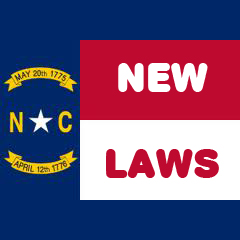 Happy 2016! As of January 1, 2016, 23 new laws will take effect in North Carolina – five of which could impact your daily life, and here they are:
Happy 2016! As of January 1, 2016, 23 new laws will take effect in North Carolina – five of which could impact your daily life, and here they are: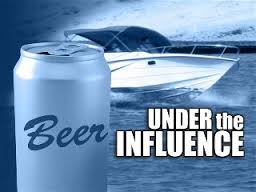 The Wrightsville Beach 32nd annual North Carolina Holiday Flotilla is upon us! Many Wilmingtonians look forward to this water-based event every Thanksgiving weekend, as family and friends come together to eat, drink, and celebrate the holiday together. Whether you have a boat entered in the contest or will be watching from land, it may be beneficial for you to be up-to-date on North Carolina’s laws against Boating While Impaired, commonly referred to as “BUI” or “BWI”.
The Wrightsville Beach 32nd annual North Carolina Holiday Flotilla is upon us! Many Wilmingtonians look forward to this water-based event every Thanksgiving weekend, as family and friends come together to eat, drink, and celebrate the holiday together. Whether you have a boat entered in the contest or will be watching from land, it may be beneficial for you to be up-to-date on North Carolina’s laws against Boating While Impaired, commonly referred to as “BUI” or “BWI”. Kelly Gissendaner was executed on Wednesday at 7pm, with respect to her sentence of the death penalty for engineering the murder of her husband in 1997, despite both her children and even Pope Carlo Francis’ wishes. After visiting the United States, the pope sincerely requested in writing that the state of Georgia not follow through with the execution of Ms. Gissendander as stated below:
Kelly Gissendaner was executed on Wednesday at 7pm, with respect to her sentence of the death penalty for engineering the murder of her husband in 1997, despite both her children and even Pope Carlo Francis’ wishes. After visiting the United States, the pope sincerely requested in writing that the state of Georgia not follow through with the execution of Ms. Gissendander as stated below: